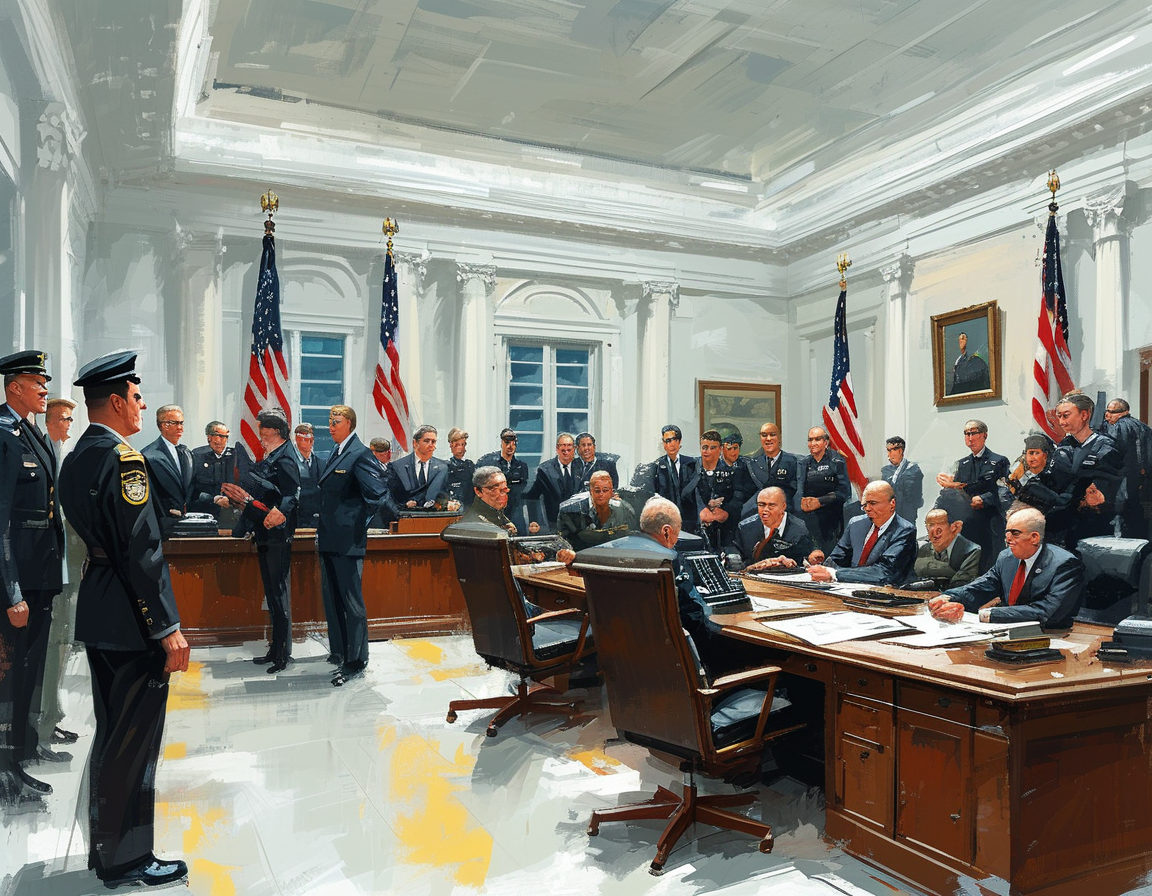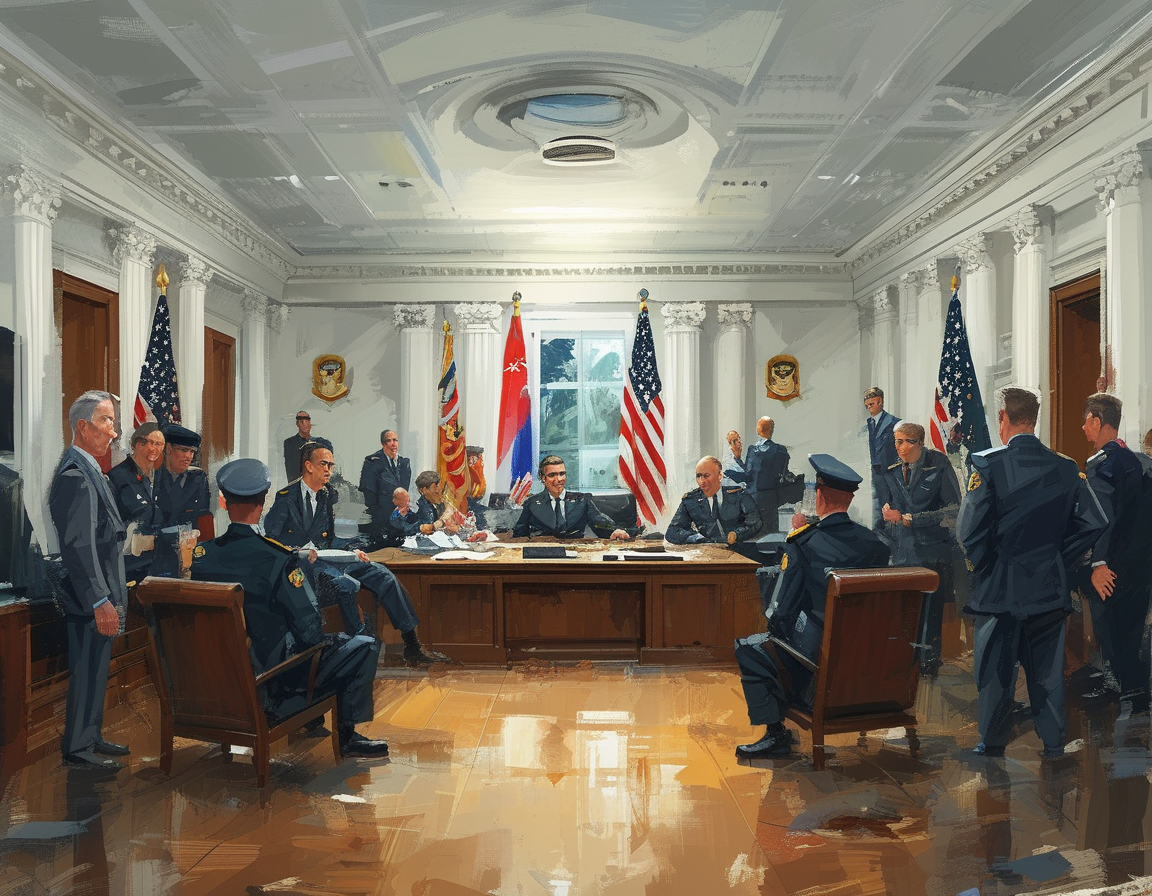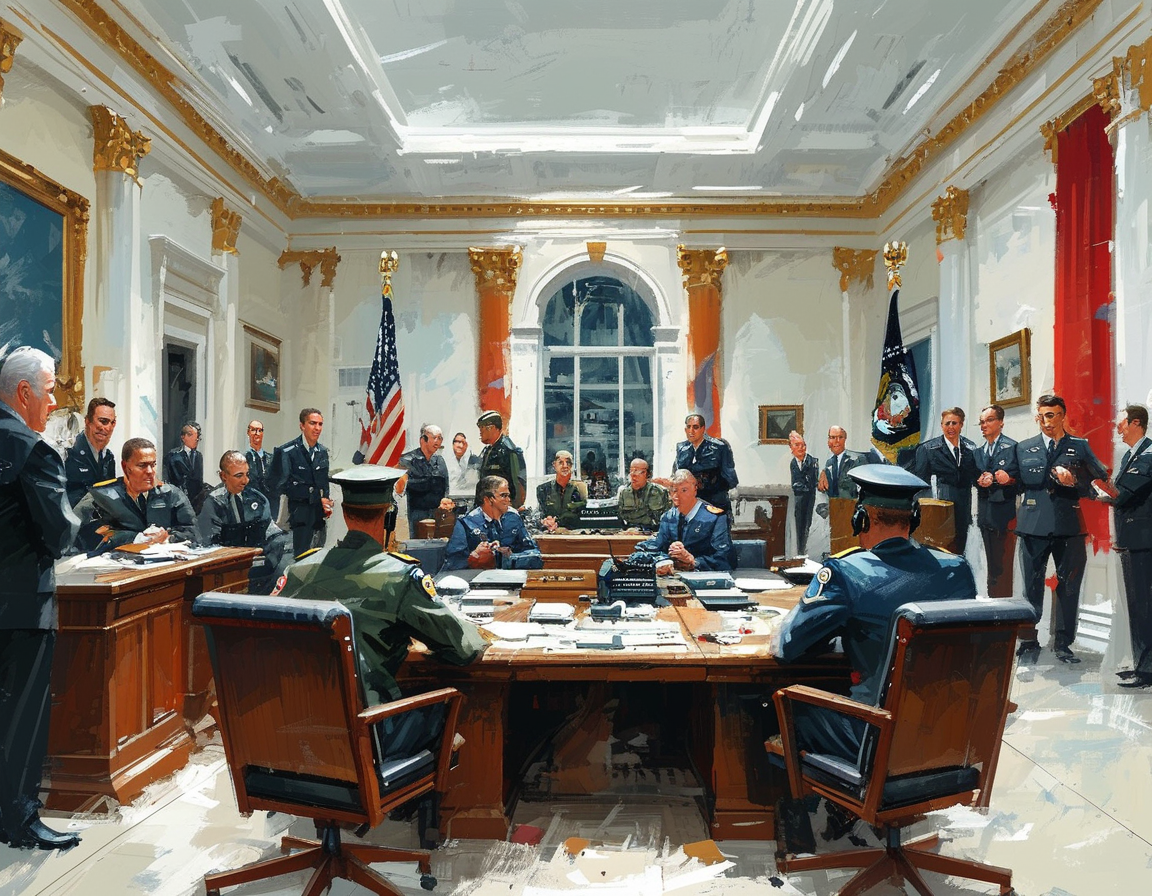In a surprising twist, Trump’s national security team faced a massive breach when influential journalist Jeffrey Goldberg was inadvertently thrust into their most sensitive chat. This incident not only raises concerns about operational security but also indicates an urgent need for a thorough evaluation of how classified conversations occur in the digital age.
Imagine being added to a discussion about imminent military actions without context or clearance. That’s exactly what happened recently when Goldberg found himself privy to discussions of U.S. airstrikes on Houthi targets in Yemen. Such revelations are troubling, especially considering the intense scrutiny surrounding national security protocols today.

The significance of such an error cannot be understated. Timing is everything when it comes to military actions. If adversaries were to gain similar access, lives would be at stake. At what point does a casual chat become a critical lapse in judgement?
The fallout from this incident already reverberates throughout Washington. The White House scrambled to stabilize a situation that exposed weak links in cybersecurity and communication. Critics from both sides of the aisle wasted no time highlighting the gravity of this breach. Senator Mark Warner declared it a reckless handling of classified material, suggesting that it jeopardizes the safety of all Americans.
Congressman Chris Deluzio echoed similar sentiments, labeling the situation an ‘outrageous national security breach.’ As the dust begins to settle, criticism intensifies, and many are left questioning whether accountability will follow so many breaches in the past.

Following this embarrassing revelation, the spotlight also turned to Trump’s handling of the matter. The president seemed completely unaware when reporters first approached him and even appeared baffled by the ramifications of such a communication mishap. Could it be that his administration’s response lacks the seriousness the crisis demands?
The Signal group chat wasn’t just a slip-up; it showcased internal divisions among Trump’s national security team. Vice President JD Vance, a participant of the chat, expressed doubts regarding the strike’s implications for U.S. foreign policy and oil prices. He brought up how the targeted threats posed a larger risk to European trade rather than American interests.
This internal dialogue reveals a fissure within the administration, raising questions about coherence in foreign policy as opinions clash. If there is disagreement at such high levels, how can American citizens trust the messages they receive about their government’s strategy?

This isn’t just a current issue; it reminds us of past incidents where national security was compromised. Hillary Clinton’s email server controversy drew unforgettable scrutiny, much like these recent developments. Back then, Trump had been a vocal critic, warning the public about the dangers of mishandling classified information.
On social media, reactions poured in rapidly with varied opinions. Even Hillary Clinton resurfaced to comment, exclaiming, “You’ve got to be kidding me.” It’s an emotional reminder that the stakes are always high. If even a celebrated politician can express disbelief, what does it say about our current political environment?
This situation invites broader discussions about the evolving nature of national security threats. Is our reliance on digital communications exposing us to unnecessary risks? Can trust be established when oversight appears shaky?
In closing, the chat app leak shines a spotlight on critical vulnerabilities in national security. As citizens, it’s crucial we demand accountability, ensuring our leaders prioritize secure communication in an increasingly digital world. How will this incident shape the future approach to such sensitive matters? For now, all we can do is observe and hope the lessons learned are meaningful.
Leave a Comment